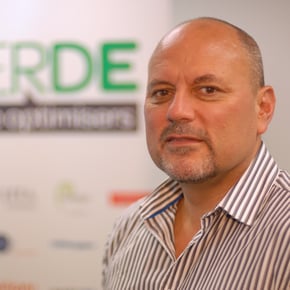Cleaning, like death and taxes, is one of those inevitabilities of daily life. It’s also good business, because although everyone loves a clean home and office, most folk would prefer that someone else does it for them. And for operators of cleaning companies, the not-so-secret to profitability and high performance is accuracy.
That’s accuracy in the use of cleaning products and equipment. Accuracy in time and attendance registers. Accuracy in billing all jobs. And accuracy in administration, to ensure that margins aren’t eroded by wasting time. Achieving that accuracy across the business depends on rock-solid systems which automate, eliminate errors and get rid of the wrong tools for the job. You wouldn’t mop a floor with a paintbrush, so why manage your staff with a spreadsheet!
Let’s take a closer look at some of the activities involved in running a cleaning company. Typically, a substantial staff roster is par for the course, with shift workers comprised of FTEs and part-timers. The payroll is the largest cost of sale and also generally the toughest part of the business to manage well. Understanding the costs and managing them effectively is therefore crucial to profitability.
Spreadsheet hell
The way in which most growing cleaning companies approach the task of time and attendance, and from that payroll, is to throw some spreadsheets at the problem. That’s because spreadsheets are inexpensive, flexible and, at smaller scale, work pretty well.
Grow a bit, however, and things quickly get out of hand. Grow a lot and all hell breaks loose. It becomes incredibly difficult and frustrating to keep track of hundreds of moving targets: employees, job sites, hours worked, overtime, holiday time, time time time.
You know the story. Getting the information together at the end of the week or month is a living nightmare. If any hair is left on the administrator’s head, it is surely grey. The time taken to get the job done, and then to redo the job because of the inaccuracies, makes a fiasco of the effort. And that can have repercussions, as employees who get inaccurate paycheques are unlikely to take it well, while customers who are slapped with faulty bills will probably not jump for joy. And that’s before you start unpicking the tangled ball of yarn which is your P&L.
The ERP answer
Yes, there is a (much) better way. By introducing an enterprise resource planning (ERP) solution specifically designed for operators in the cleaning industry, you can take control of every aspect of the business, and take control of your hair as an added bonus.
Some of the cleaning companies Verde has worked with to introduce ERP systems that replace the paperwork include United Cleaning Services, Jet Cleaning and Paramount Services.
Common pain points include inefficiency in managing staff rosters, time and attendance and payroll. Producing month-end reports is a mission. Producing any reports is a mission. Generally, growth is considered a good thing, but not when manual, paper based systems drive up complexity to the extent that growth is feared rather than welcomed.
What a proven ERP solution for the cleaning industry offers is essential modules which include:
These modules combine with other ‘standard’ ERP modules, such as the General Ledger, Accounts Payable and Receivable, and others, to transform your cleaning business. Let’s see how.
ERP results from the field
For United Cleaning Services, embracing ERP has meant abandoning paper processes. Increasing efficiency by 30% in less than a year has boosted profitability, while the time to produce month-end reports has been cut drastically. Rather than an exercise in head-numbing arithmetic, it is now a matter of pressing a few buttons, ‘et viola’. And that means the financial team now spends more time analysing reports and enhancing the business, rather than chasing paper.
The lack of flexibility with reporting was a pain-point, said financial controller Mahesh Lala, as was extracting data from the system. “Calculating the cost of consumables that clients needed to be invoiced for – such as toilet paper, rubbish bags and bin liners – was a manual process. Operations managers would be handling multiple pieces of paper when trying to calculate the cost. “Also, the lack of ability to run job costing reports in the future or prior period was always a problem,” he said. But with the ERP system implemented by Verde, that’s all changed. “We are not mucking around with Excel spreadsheets and Access reports anymore – Greentree does all the reporting for us,” Lala said.
Kristian de Pont, General Manager of Jet Cleaning, explained that when you hit those new levels of complexity, you need to make changes to enable growth and avoid stagnating. “We had a basic accounting system and a suite of not-very-sophisticated spreadsheets that managed everything from resources and personnel, to consumables and customer information. Everything was separate and there was no automation. We had problems with time spent on entering data, and gaps in information due to multiple entry issues. That loss of information threatened to compromise client service and cost us money due to missed billing opportunities. We also run a very lean operation and didn’t want to take on the extra staff we could see ourselves needing, just to cope with our paper war.”
Greentree’s fully integrated financial and inventory management, job costing and CRM automated all those time-wasting manual entry processes, while Workflow and eReporting enabled real-time management of franchisees, winning that paper war through electronic purchase orders and invoicing.
ERP is a ticket to scale (and to the future)
The top cleaning companies in New Zealand have seen the light: to scale and grow and to keep control of a large business with multiple moving parts, a sound business software system is essential.
Is your company prepared for the future?
Give us a call and we’ll be happy to discuss requirements and demonstrate how ERP can transform your organisation into a high-performing business.

